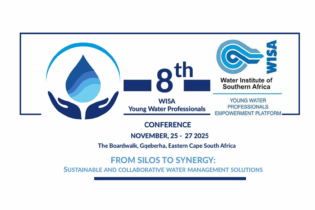The municipality of eThekwini, which includes the holiday playground Durban, is gearing up for a bumper tourist season. But it faces many challenges, including sewage leaking into the sea—forcing the closure of beaches—and losing revenue from its water.
By Chetan Mistry, Xylem Africa’s Strategy and Marketing Manager A recent analysis of reports estimates that Johannesburg loses 39% of its pumped water, Nelson Mandela Bay’s losses are 44%, and 46% of Mangaung water goes missing. eThekwini leads the pack with an astounding 56 percent, tallying losses in the region of R5 million daily. Those funds could help fix the sewage problems and promote safe, clean beaches. Experts refer to such losses as non-revenue water: paid water that never reaches its destination due to leaks and theft, ultimately leaving the bulk buyer—the municipality—without any returns. eThekwini could recoup nearly R2 billion annually if it reduced non-revenue water losses. But water infrastructure is sprawling and complicated. How can we start to strategise and manage these issues without drying up city budgets? How can we create quick results without breaking the bank? Data is the answer. Water’s Data is Rising Digital solutions are empowering water utilities in fantastic new ways. They gain better insight into the condition and performance of their water networks and systems, using data that is already available or quick to generate. The right combination of data experts, technologies and engineering skills can give every water utility actionable information on everything from pipes and valves to pumping stations and sewage systems. “Using data to manage, optimise and proactively maintain water infrastructure is delivering excellent results,” says Chetan Mistry, Xylem Africa’s Strategy and Marketing Manager. “We have case studies where customers stopped repeated disruptions and reduced their capital planning time by 75%. The answer is to use data and pinpoint the areas that need priority attention, then develop a longer-term plan for maintenance and replacements. But many utilities don’t do this because they think they don’t have enough information. That’s often not the case. They already sit on a wealth of insights.”Water operators collect a significant amount of data through hubs such as SCADA systems, but they don’t use it to full effect. This response is not unique. Modern organisations of all types sit with heaps of data that they don’t know how to turn into insights, or lack the skills and resources to do so. Call it a curse of the digital age: we have abundant information but struggle to turn that into knowledge.
The Power of Prediction Predictive data tools and services are starting to turn the tide and put water operators back in charge of their sites and infrastructure. Leading water solution providers combine digital platforms with data literacy to help their customers develop future-proof networks that can handle variability. “Having the means to harvest and interpret data is one aspect of data solutions,” says Mistry. “But the real value comes from travelling with our customers on their journey, from analysis to action. The best providers must remove the fear of the unknown, help utilities engage all their stakeholders, and deliver definitive results. Using data is not about technology. It’s about skills and collaboration, supported by technology. Companies that embrace this view get the best results from their data.” What kind of results can they expect? Assets connected digitally with sensors generate patterns that reveal many interesting insights, including maintenance status, underperformance, excessive energy consumption, flow, pressure, water level, pH levels, conductivity and numerous other metrics. The collected information can support operations and maintenance planning, alarms and service quality supervision. Data Flourishes with Skills and AI As mentioned, these amounts of data are big and growing bigger. To create helpful analytics, service providers combine civil engineering, data platforms and tools such as machine learning. They also apply their expertise to cleaning data, ensuring water managers avoid getting bad answers from poor-quality data. Then they bring it together to be understandable and streamlined so clients can make better decisions. “Most data projects fall apart because they are mostly focused on technologies and not the skills and processes that lead to better understanding of data,” says Mistry. “At the very least, you need a data scientist to find value in your data. We enhance our data products with a deep bench of experts with backgrounds in mathematical modelling, system dynamics and civil engineering. Those make up the essential pieces of getting useful and relevant insights.” If South African cities have the correct information, they can recoup millions in lost water revenue and realise maintenance savings. They already have the data to start making crucial choices. With the right partners, they are poised to take big steps forward in their infrastructure management and savings. Don’t drown in data. It’s time to swim with your insights and enjoy actual returns for true service delivery






